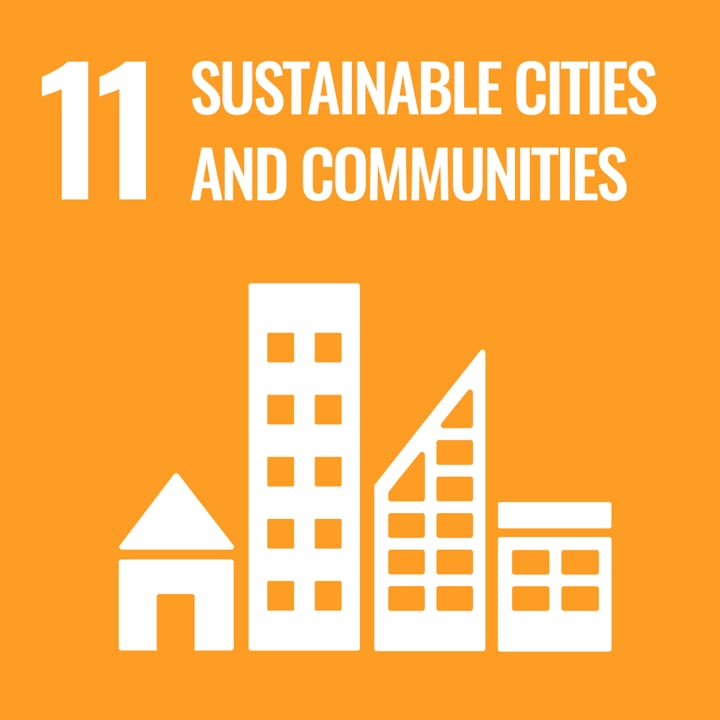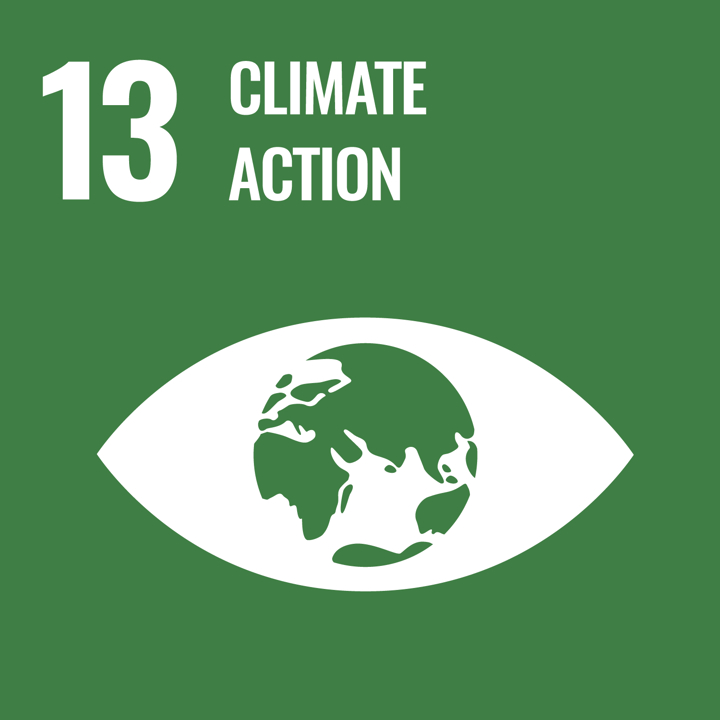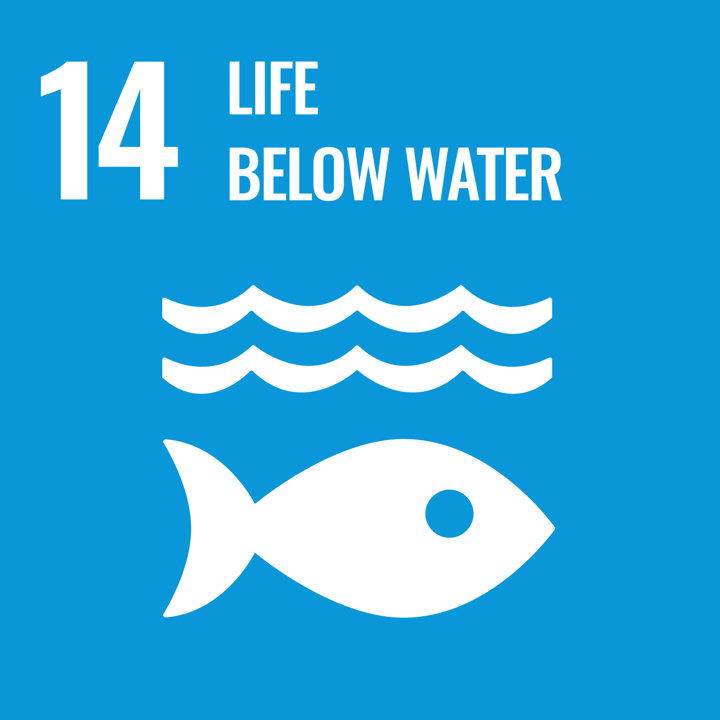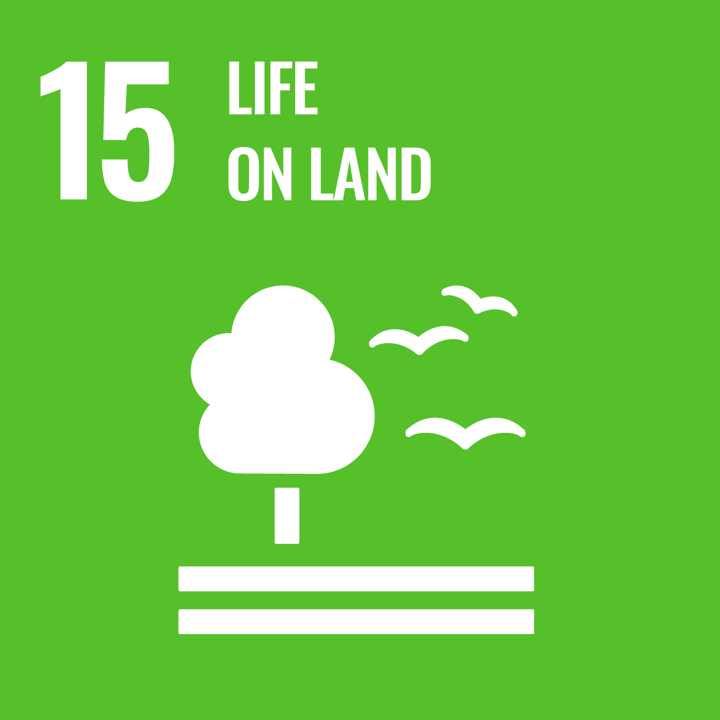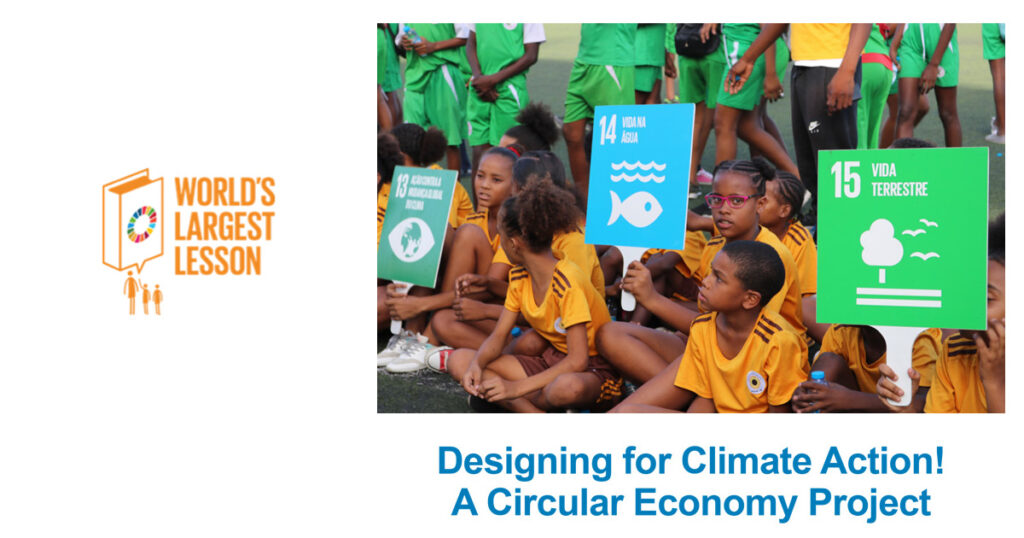
Beoogde eindgebruiker: Leraar
Leeftijdsgroep: Hoger primair onderwijs; Lager secundair onderwijs
Schoolcurriculum: Wiskunde; Natuurwetenschappen; Maatschappijleer, Lichamelijke Opvoeding en Gezondheidsleer; Maatschappijleer en Milieukunde; Letteren;
Thema's en onderwerpen: Collectieve actie, economie, toekomstdenken, macht & invloed, informatie & kennis, burgerschap, pedagogische aanpak
Duur: 10 uur
Type bron: Beoordeling, Richtlijnen en aantekeningen, Audio/Video, Lesplannen, Presentatie, Project
Trefwoorden: Design thinking, circulaire economie, plaatsgebaseerd leren, uitdaginggebaseerd leren, gemeenschap
Talen: Engels
Beschrijving
Dit project duurt ongeveer 10 uur. Leerlingen maken kennis met Design Thinking en de ontwerpvaardigheden die ze zullen gebruiken bij het creëren van hun innovaties. Aan het einde van het project worden de leerlingen aangemoedigd om een wetenschapsbeurs te organiseren, waar ze hun innovaties kunnen laten zien aan ouders en andere leden van de schoolgemeenschap.
Het Design Thinking Project is opgedeeld in 10 activiteiten, die de 6 fasen van de Design Thinking Cycle volgen. Als dit de eerste keer is dat je Design Thinking gebruikt met je leerlingen, vinden ze het in het begin misschien wat moeilijker. Maar hoe vaker je het proces met je leerlingen kunt herhalen, hoe vertrouwder ze zullen worden met de taal van Design Thinking.
Hoe gebruik je deze bron
Het project Ontwerpen voor Klimaatactie! Een Circulaire Economie Project biedt 10 activiteiten met hulpmiddelen en dia's voor leerkrachten om een Design Thinking Project uit te voeren. Dit project heeft als doel het begrip en de competenties van leerlingen te ontwikkelen om actief deel te nemen aan een circulaire economie en tegelijkertijd de behoeften van hun gemeenschap te begrijpen.
Deze bron kan worden gebruikt als een goed praktijkvoorbeeld van het gebruik van design thinking en challenge-based learning in de eigen gemeenschap om te leren over en betrokken te raken bij een circulaire economie. Deze bron kan worden gebruikt voor het faciliteren van een workshopactiviteit voor leerkrachten om het project zelf te ervaren en hun lessen op schoolniveau toe te passen buiten de klas.
Er wordt gebruik gemaakt van bestaande kennis over de circulaire economie en design thinking, met aanvullende bronnen, video's en podcasts om de kennis verder uit te breiden. Er is een duidelijke focus op het aanpakken van behoeften binnen de lokale gemeenschap. Deze hebben direct betrekking op SC.
Het hulpmiddel biedt een structuur, hulpmiddelen en ondersteunend materiaal om docenten en leerlingen door een Design Thinking-project te leiden, van brainstormen, conceptualiseren, prototypen tot beoordelen. Deze hulpmiddelen en kaders helpen leerkrachten om SC en de circulaire economie te promoten op een gestructureerde en praktische manier die de competentieontwikkeling bij leerlingen bevordert.
Hoewel de bron niet expliciet vraagt om reflectie op praktijk en beleid, bevordert het wel een interdisciplinaire projectmatige benadering van leren die betrokkenheid met externe belanghebbenden vereist.
De bron bevat een rubric om zelfevaluatie en reflectie door studenten over het projectproces en de competenties die ze tijdens het project hebben ontwikkeld te vergemakkelijken. Deze kunnen verder worden ontwikkeld om het Green Comp-kader te weerspiegelen.
De middelen
Ontwerpen voor klimaatactie! Een Circulaire Economie Project (PDF):
Andere bronnen:
De bron bevat links naar aanvullende leermiddelen, video's en ondersteunende bronnen. Links naar aanvullende bronnen zijn hieronder te vinden:
- s Werelds grootste startpagina voor lessen
- Ontwerpen voor de circulaire economie Google Slides Presentatie
Leerresultaten
- Eliciteren van voorkennis en verder ontwikkelen van kennis en begrip van de belangrijkste concepten van Duurzaam Burgerschap, waarbij gevestigde wereldbeelden en waarden in twijfel worden getrokken.
- Een reeks geschikte hulpmiddelen en kaders toepassen om duurzaam burgerschap bij studenten te bevorderen.
- Reflecteren op de praktijk en nationale curricula onderzoeken om mogelijkheden te identificeren om Duurzaamheidsburgerschap op interdisciplinaire manieren te bevorderen en samen te werken met externe belanghebbenden.
- Beoordelingscriteria ontwikkelen en toepassen om Duurzaamheidsburgerschap bij studenten te evalueren.
Groene competenties
- Duurzame waarden belichamen: Duurzaamheid waarderen, natuur bevorderen
- Complexiteit omarmen in duurzaamheid: Kritisch denken; probleemopstelling
- Duurzame toekomstvisies: Aanpassingsvermogen; Onderzoekend denken
- Handelen voor duurzaamheid: Collectieve actie; individueel initiatief
Creative Commons

Deze bron is gemaakt door World's Largest Lesson en wordt gedeeld onder de Creative Commons Naamsvermelding-GelijkDelen 4.0 Internationale Licentie.
SDG's
